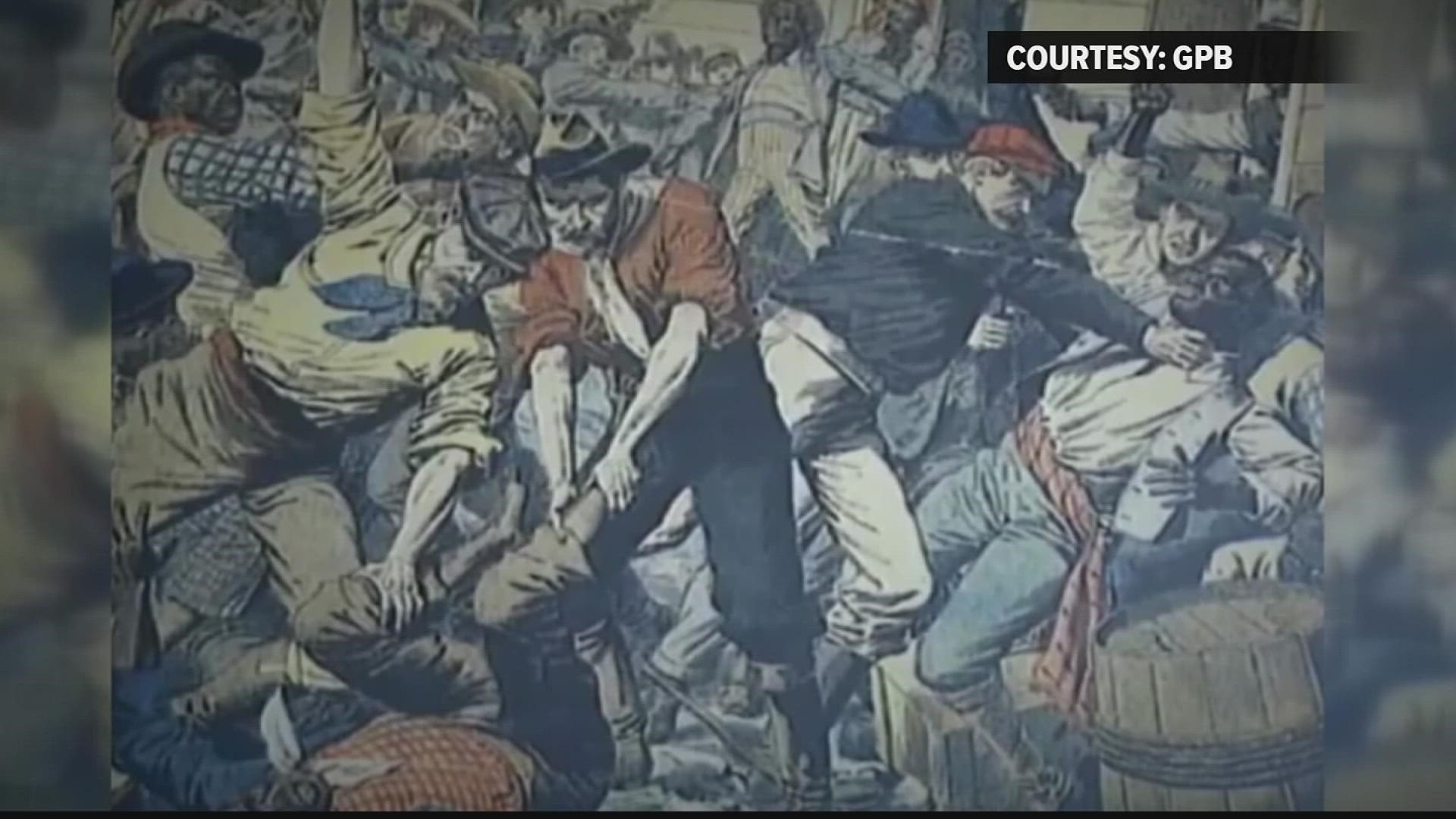ATLANTA — Beginning Thursday, Atlanta will pause to remember the victims of the 1906 Atlanta Race Massacre, a three day reign of terror that led to the deaths of at least two dozen members of the Black community.
Historians say that anger and resentment are among the reasons why a white lynch mob of thousands attacked Black owned businesses and communities over three days. It all began in the Five Points area of downtown Atlanta on Sept. 22, 1906.
Among the targets of the lynch mob was an area of southeast Atlanta known then as the Brownsville neighborhood. That’s where the family of Alexander Walker lived. When he felt his family was threatened, Walker raced home to defend his pregnant wife and children.
“They were protecting their families and they had no recourse,” said Walker’s granddaughter Pat Bearden. “That’s just human nature to fight back.”
Through stories passed down through the ages, Bearden has learned that her grandfather was wrongly convicted of murdering a police officer and sentenced to life in prison. Despite taking numerous Black lives, no one in the lynch mob was arrested.
“It’s important to know your history,” said Bearden. “It helps you to understand why people act the way they are and why people do what they do.”
Over the years, there have been ceremonies to learn and remember. This year’s events will include commemorative markers placed in downtown Atlanta, the old Brownsville neighborhood, and in East Point where the mob lynched Zeb Long, who was taken out of jail by 50 white men after Long’s arrest for complaining about the way whites treated Blacks.
Ann Hill Bond of the Fulton County Remembrance Coalition explained the mob was motivated by resentment over the success of many in the Black community. The flames of hatred were fanned by politicians and yellow journalism.
“It could happen again if you don’t understand the root of why something happened,” said Bond. “If you don’t understand how it’s still appearing today even in the microforms.”
Dozens of African-Americans were arrested trying to defend themselves from the 1906 mob.
“I know he asked for mercy,” said Bearden of her grandfather.
She and her family can’t find any pictures of her grandfather, but she does have pictures of her uncle, John Kilpatrick Walker, who was named for the lawyer who cleared Alexander Walker’s name and got him out of prison in less than a year.

